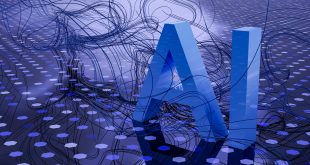Artificial Intelligence (AI) is no longer just a futuristic concept; it has become a central part of how businesses operate in 2026. From chatbots and automation tools to self-driving vehicles and generative AI systems, technology is reshaping industries worldwide. But with this rapid innovation comes a critical question: Will AI replace human jobs in 2026?
At Bloggers Trend, we examine future-focused discussions that shape societies and industries. In this article, we highlight what experts say about the role of AI in employment, its risks, and its opportunities.
1. The Automation Revolution
Automation is one of the biggest forces changing the job market:
-
Repetitive tasks in industries like manufacturing, data entry, and logistics are being handled more efficiently by AI.
-
AI-driven tools can complete tasks faster and with fewer errors, leading to reduced labor costs for businesses.
-
Many companies are re-evaluating whether human employees are necessary for roles that can be automated.
This is a major reason why people fear job losses in 2026.
2. Experts Say AI Will Replace Some Jobs — Not All
While AI is powerful, experts clarify that it won’t completely eliminate human work. Instead, it will transform jobs:
-
Routine roles may disappear, but new opportunities will emerge in AI development, supervision, and maintenance.
-
Human creativity, emotional intelligence, and decision-making remain irreplaceable.
-
According to global surveys, most industries predict a shift in job roles rather than total elimination.
Thus, the question isn’t only “Will AI replace human jobs?” but also “How will AI reshape them?”
3. Industries Most at Risk
Certain industries are more vulnerable to AI disruption:
-
Manufacturing & Logistics: Robots and automated systems are reducing the need for physical labor.
-
Customer Service: AI chatbots and virtual assistants handle millions of queries daily.
-
Finance & Data Entry: AI tools can analyze large datasets faster than humans.
However, industries like healthcare, education, arts, and management still rely heavily on human skills.
4. New Job Opportunities Created by AI
Ironically, AI is also creating jobs:
-
Roles in AI ethics, regulation, and governance are emerging.
-
Jobs in AI maintenance, programming, and security are in high demand.
-
Creative industries are blending AI with human talent, producing new forms of content, design, and innovation.
Experts suggest that workers who adapt to AI technologies will remain valuable in the job market.
5. Human Skills That AI Cannot Replace
Experts agree that AI lacks certain uniquely human qualities:
-
Emotional intelligence in leadership and care professions.
-
Creativity and innovation in art, storytelling, and design.
-
Critical thinking and ethics in law, governance, and human rights.
-
Complex decision-making in unpredictable situations.
These skills ensure that humans remain central to the workforce, despite technological progress.
6. The Role of Governments and Policies
Governments worldwide are stepping in to address the challenges of AI-driven automation:
-
Some are considering universal basic income (UBI) to support displaced workers.
-
Education systems are being redesigned to emphasize digital literacy, AI skills, and adaptability.
-
Policies are being developed to regulate AI use and protect employment.
This proactive governance will shape whether AI becomes a threat or a partner in human work.
7. What Experts Predict for 2026 and Beyond
-
AI will replace repetitive and manual tasks.
-
Jobs requiring human creativity, empathy, and leadership will remain secure.
-
The future workforce will be hybrid — humans and AI working together.
-
The biggest challenge won’t be unemployment but reskilling and adaptation.
In short, AI will not destroy jobs entirely but will redefine what “work” means in society.
Conclusion
So, will AI replace human jobs in 2026? The answer is both yes and no. While certain roles are disappearing due to automation, countless new opportunities are being created. Experts emphasize that the future belongs to those who adapt, learn, and embrace AI as a tool rather than fear it as a competitor.
At Bloggers Trend, we believe that the future of work is not about humans versus machines but humans with machines. By embracing AI responsibly, we can create a future where technology enhances human potential rather than replaces it.
FAQs
1. Will AI replace all human jobs in 2026?
No. Experts say AI will replace some repetitive roles but will also create new jobs in AI-related industries.
2. Which jobs are most at risk from AI?
Manufacturing, logistics, customer service, and data entry jobs are most vulnerable.
3. What jobs will remain safe from AI?
Jobs requiring creativity, emotional intelligence, critical thinking, and leadership remain safe.
4. Can AI create new jobs?
Yes. Roles in AI programming, ethics, regulation, and innovation are increasing.
5. How can workers prepare for an AI-driven future?
By learning digital skills, staying adaptable, and focusing on areas where human qualities matter most.
 Bloggers Trend Keeping You Up To Date
Bloggers Trend Keeping You Up To Date

